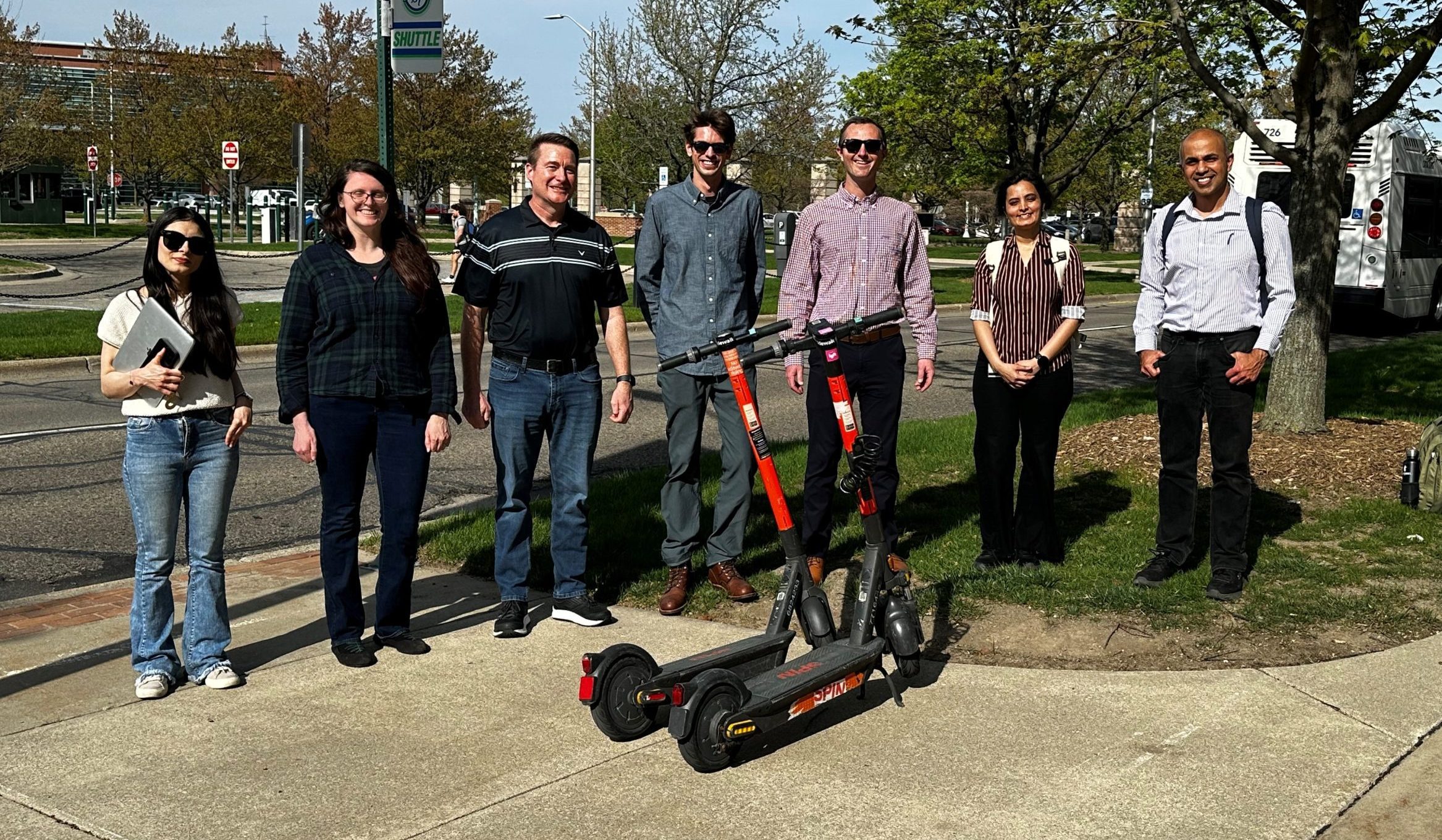SPIN Funds New Research Projects at MSU, Strengthening a Model for Innovation Through University-Corporate Partnership

EAST LANSING, MI — May 29, 2025 — Michigan State University (MSU) and SPIN, a leading micromobility provider, are deepening their innovative partnership with the launch of two new faculty-led research projects aimed at advancing sustainable transportation and smart mobility solutions.
These projects, funded by SPIN through MSU’s Innovation Center, reflect the power of sustained university-corporate collaboration to drive real-world innovation. The partnership, which began in 2021 with the introduction of SPIN e-scooters on campus, has evolved into a dynamic research ecosystem that supports faculty, students, and the broader MSU community.
“This multifaceted partnership with Spin exemplifies the kind of forward-thinking collaboration that defines MSU’s approach to corporate research and engagement,” said Brice Nelson, Director of Corporate Partnerships at Michigan State University. “Our faculty and students are working in collaboration with Spin’s team on cutting-edge projects that not only advance the mobility industry but also provide meaningful, applied learning opportunities. It’s a true win-win that reflects the best of what university-industry partnerships can achieve.”
New Research Projects Funded by SPIN
- Detecting Unlicensed Scooter Movements with AI
Led by Dr. Shaunak Bopardikar and Dr. Prajakta Surve, this project will develop a machine learning system to detect unauthorized movements of SPIN scooters, such as lifting, dragging, or relocation without an active ride. Using real-time telemetry and GPS data, the system aims to reduce vandalism and improve fleet security. - Optimizing Scooter Deployment with Agent-Based Modeling
A second project will build a high-resolution simulation of mobility patterns across MSU’s campus. Using agent-based modeling and evolutionary algorithms, Dr. Emily Dolson and her team will identify optimal scooter deployment strategies and support long-term planning for MSU’s Vision 2050 transportation goals.
These projects build on a strong foundation of collaboration. Since 2021, SPIN scooters have logged over 170,000 rides on campus, and the company has shared anonymized data with MSU researchers to support studies on mode shift, safety, and operational efficiency. The partnership has also funded competitive research grants, enabling faculty to explore cutting-edge questions in mobility and urban systems.
A Living Lab for Innovation
MSU’s campus serves as a “living lab” for micromobility research, where real-world data and infrastructure support experimentation and discovery. The SPIN partnership is a cornerstone of this approach, aligning with MSU’s broader sustainability and innovation goals.
Readers interested in learning more about the history and impact of the MSU-SPIN partnership can explore the following stories:
- Campus as a Living Lab: Micromobility Research at MSU
- SPIN E-Scooters Generate Heavy Use in 2021
- New Partnership Brings E-Scooters Back to Campus
Is your company interested in partnering with any of MSU’s mobility experts? Click Here.
About the MSU Innovation Center:
The MSU Innovation Center combines research partnerships, technology transfer, and startup support for MSU faculty who aim to see their research applied to make the world a better place.
Composed of Business Connect, MSU Technologies, and Spartan Innovations, the MSU Innovation Center aims to amplify the impact of faculty research and drive economic growth while positively impacting society to solve real-world challenges with cutting-edge ideas.
Through mutually beneficial, long-term partnerships with the private sector, we connect MSU faculty with companies for corporate-sponsored research collaborations. We also play a key role in facilitating the commercialization and public use of technologies and copyrightable materials, moving MSU’s innovations from the lab to the marketplace. Importantly, we provide significant support for faculty entrepreneurs in establishing startup companies based on technologies developed at MSU.
